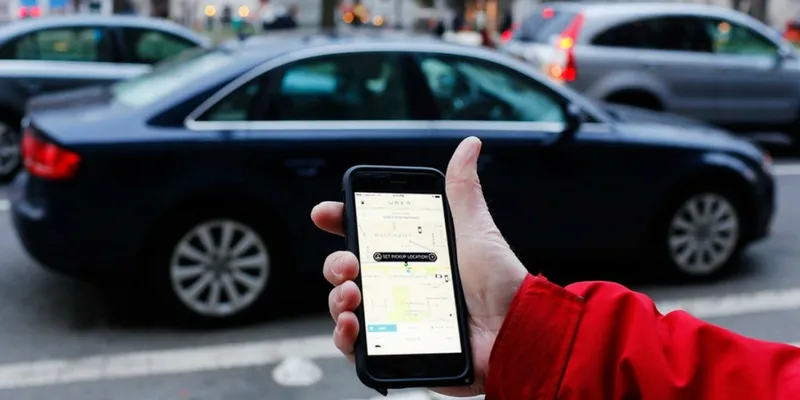Uber IPO: Bumpy ride for Uber in its trading debut
Ride-hailing company Uber's shares fell in its trading debut, a disappointing start to one of the most anticipated tech IPOs ever.

Uber's first day of trading on Friday failed to take off as expected, with shares in the world’s largest ride-hailing service trading down in volatile early trading, a surprising turn of events for the largest U.S. IPO since Alibaba’s debut in 2014.
Shares of the company, which was founded in 2009 by Travis Kalanick and Garrett Camp, opened at $42, down 6.7 percent from its already conservative IPO price of $45. At its IPO price, Uber was valued at about $82 billion.
At 12:07 pm Eastern time, Uber's shares were trading down 3.9 percent at $42.23, giving the company a market valuation of about $72.5 billion, according to a Bloomberg report, below Uber’s latest valuation of $76 billion in August last year. Shares have since pared losses.
Uber's underwhelming debut also comes amid broader weakness and uncertainty in U.S. stocks on Friday over growing concerns of a U.S.-China trade dispute.
“Does Uber become the next Amazon? This will be the battleground issue on the name as the Street battles around the right valuation for this transformational tech story,” says Los Angeles-based brokerage Wedbush Securities in a research note.
Amazon, which went public in 1997, posted losses for several years as a public listed company, finally turning profitable only in 2003. The company, founded by Jeff Bezos in 1994, reported a net revenue $10 billion for 2018.
Uber, since its inception in 2009, has faced a bumpy ride with lack of visibility on profitability, and slowing growth muting investor expectations, but yet was one of the most highly-anticipated IPOs of all time. Uber operates in a number of verticals besides ride-hailing, including food delivery and freight, all of which are highly competitive and fragmented markets. In ride-hailing, discounts and promotions to entice users are fairly common, and that can put a strain on operating expenses.
Wedbush also said in the note:
“Similar to Lyft, we see a difficult path to profitability for Uber as well, but think Uber’s larger global network will help and we note we see an easier road for Uber Eats and Freight, which may help offset some of the challenges.”
Adding to investor worries about Uber’s listing is the lackluster performance of Lyft, its biggest rival in North America. While both companies filed for their respective IPOs in December, Lyft went public in March. The company’s performance has been used as a barometer by some to understand how Uber’s shares may perform.
Lyft’s shares had a strong debut, but quickly fell below its IPO price on the second day. Unlike Uber, which priced its IPO at the lower end of its $44-$50 per share range, Lyft had set its price at the higher end of the range. On Thursday, Lyft shares hit a record low after it reported its first ever quarterly results earlier in the week, and warned full-year revenue growth would slow down.

Also read: Uber’s upcoming IPO puts the spotlight on the ride-hailing startup’s bumpy ride to profitability
Beyond the taxi
Both Uber and Lyft have never reported a profit, and the former has warned that it may never do so. Uber’s cars, bikes and auto rickshaws, however, are present in more geographies internationally, including India, Australia and South Africa. The company also has its growing UberEats business to bolster revenue.
Uber’s expansion into different markets may prove to be the saving grace, according to Wedbush Securities.
“A core tenet of our bull thesis on Uber is around the company’s ability to morph its unrivaled ridesharing platform into a broader consumer engine with Uber Eats, Uber Freight, and autonomous initiatives “just scratching the surface” of the full monetisation potential of this platform over the next decade.”
Wedbush believes Uber has established itself as the “#1 player” in the industry, and that the company has the potential to transform the industry in the same way Amazon changed the retail and e-commerce landscape.
Uber, led by former Expedia chief Dara Khosrowshahi, posted a 42 percent rise in revenue to $11.27 billion in 2018, according to its filing. Its monthly active users, including those of UberEats, rose about 34 percent to 91 million during the year.
The company’s stock trades on the New York Stock Exchange under the ticker “UBER”.
Also read: Uber Eats to expand into 100 cities including the Middle East, Africa, and Asia







